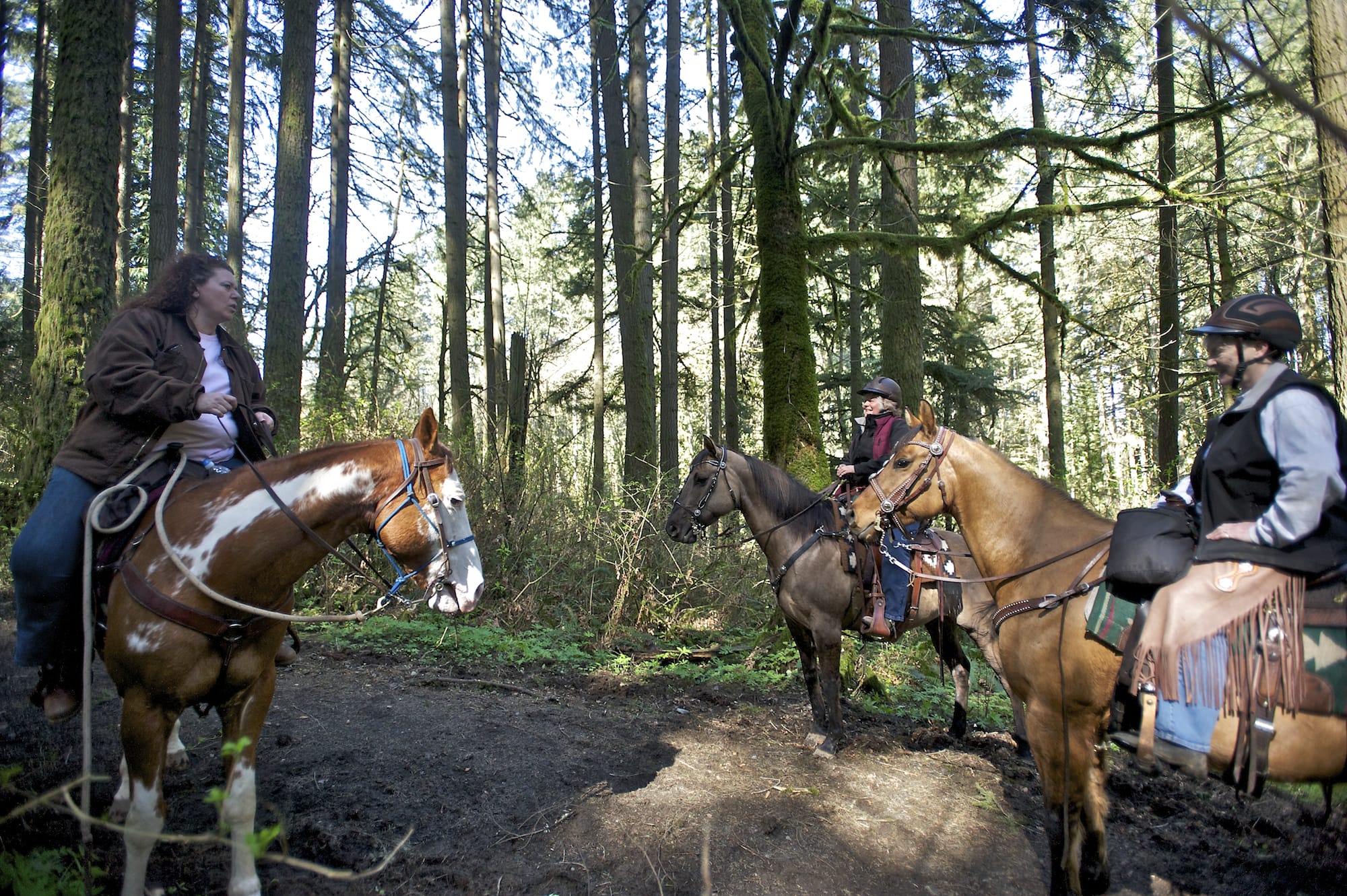For horse owners, spring is the season for conditioning their animals, after horses spend a long winter in the barn and the pasture.
“Anytime the rain stops, maybe there’s a weekend with a two-hour window of sun, people grab their horse and go. You grab every opportunity you can to get on the trail,” said Barbara Thomas, work party coordinator for the Washington Trail Riders Association, who’s been trail riding for more than 22 years.
o Back Country Horsemen of Washington: The Mount St. Helens chapter maintains the Rock Creek and Kalama horse camps, often organizing longer rides around the region. The group meets at 7 p.m. the first Monday of each month at Round Table Pizza, 616 N.E. 81st St., Vancouver. For more information, visit its website.
o Clark County Saddle Club: The club, at 10505 N.E. 117th Ave. in Vancouver, helps promote horse-riding sports and activities, including barrel racing and the annual Vancouver Rodeo. For more information call 360-891-7922 or visit its website.




